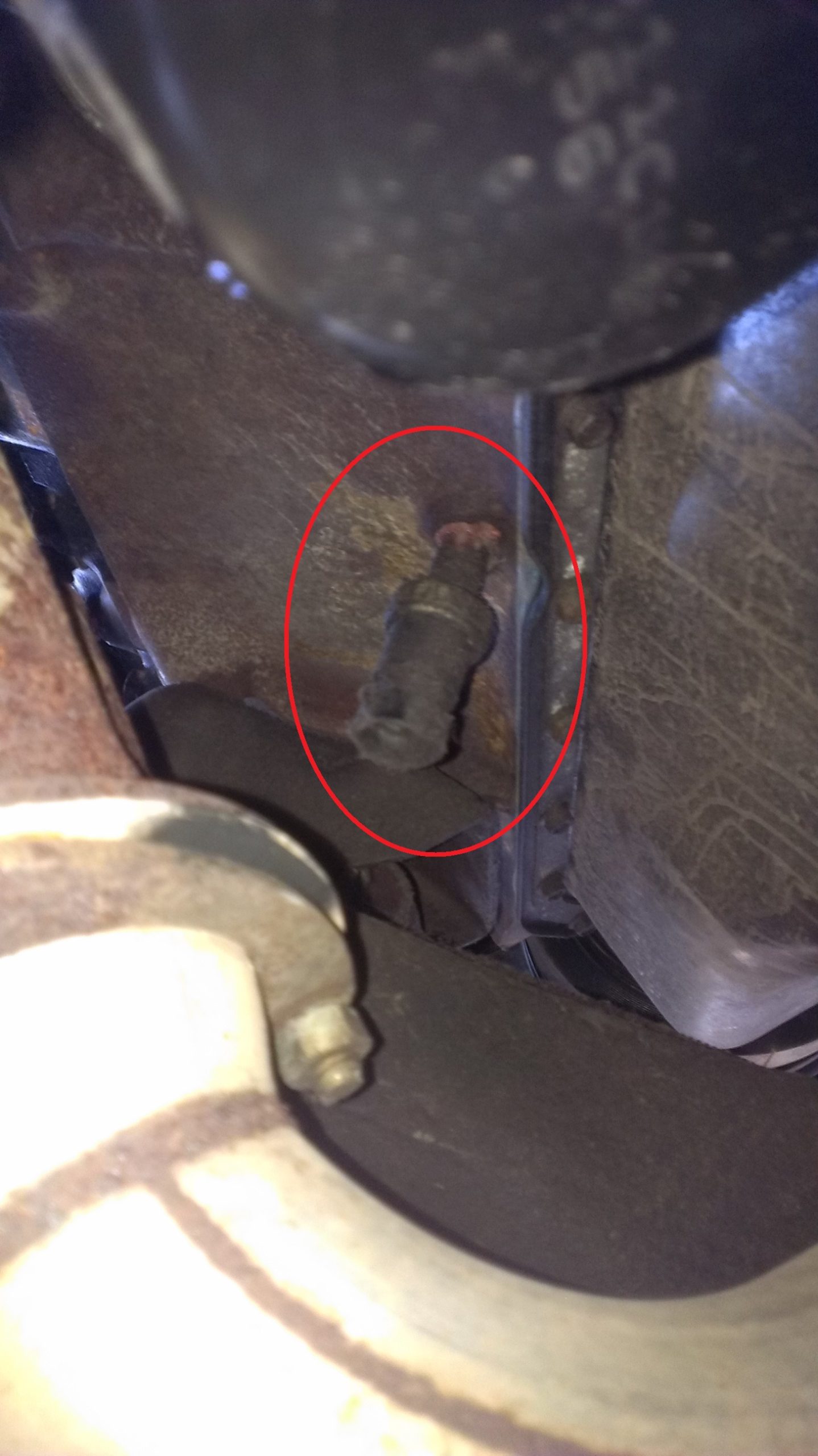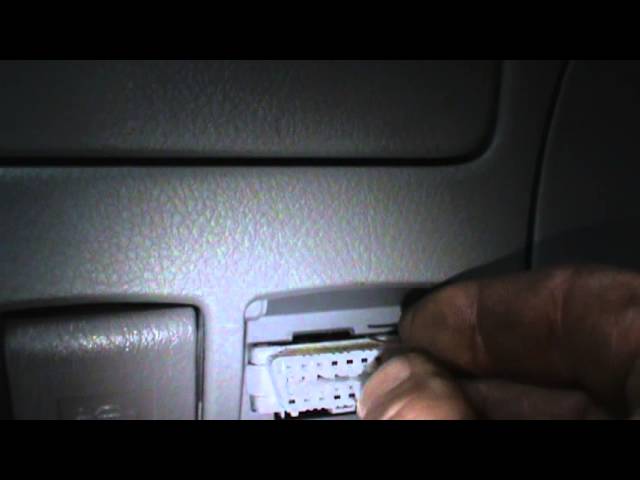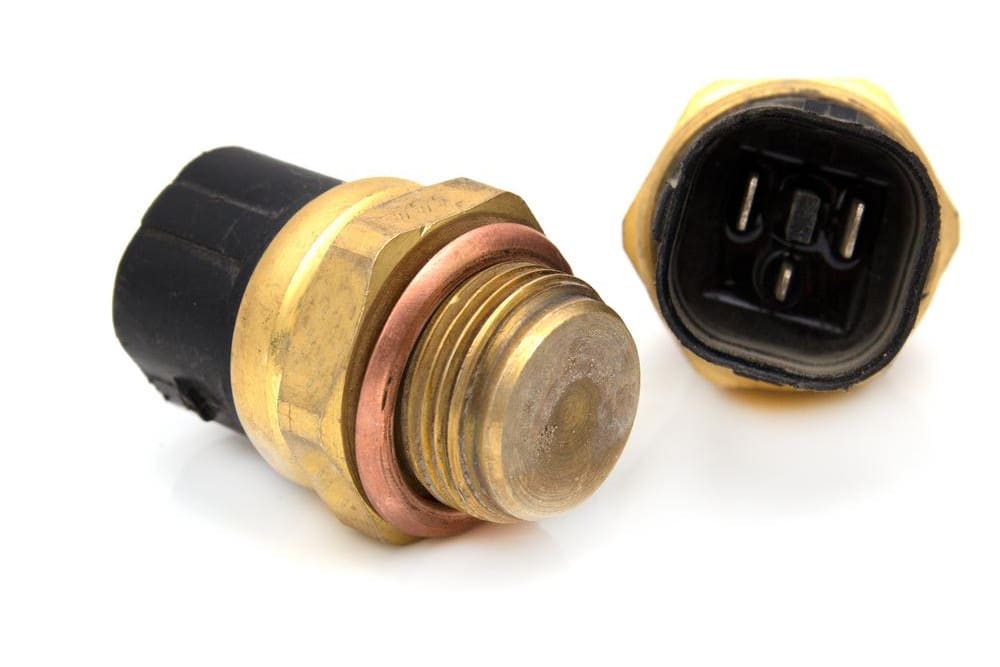Can a Knock Sensor Cause Rough Idle
Yes, a faulty knock sensor can cause rough idle in a vehicle. It may lead to improper engine combustion timing.
A knock sensor plays a critical role in the engine management system by monitoring for any unusual detonations, known as engine knocks. This sensor’s input helps the engine control unit (ECU) to fine-tune ignition timing and prevent potential damage. When a knock sensor malfunctions, the ECU receives inaccurate data, which can disrupt the engine’s timing and fuel mixture.
This disruption often results in a rough idle, as the engine struggles to maintain a steady rotational speed. Vehicle owners noticing a rough idle, accompanied by a check engine light, should consider the knock sensor as a potential culprit. Timely diagnosis and replacement of a defective knock sensor are essential to safeguard engine performance and prevent more extensive damage.

Credit: www.reddit.com
The Role Of Knock Sensors In Engine Performance
Think of your engine as the heart of your car. Just like your heart, your engine needs to run smoothly to keep your car healthy. Knock sensors play a vital role in ensuring this. They listen for specific noises that indicate problems, helping maintain efficiency and power.
Function Of Knock Sensors
Knock sensors are like secret agents for your car’s engine. They stay hidden but always on alert. Their mission is simple but crucial: detect engine knock or detonation. This is a type of fuel burn that can damage the engine. When they spot trouble, these sensors send a signal to the car’s computer. This alert tells the computer to make adjustments. It’s all about keeping the engine safe and sound.
Consequences Of Malfunctioning Sensors
A faulty knock sensor can spell trouble. It might not catch the signs of engine knock. Your car could witness several problems:
- Poor fuel economy – The car uses more gas than it should.
- Power loss – The car may feel sluggish and slow.
- Rough idle – The car might shake or vibrate when stopped.
These symptoms not only affect your drive, they could mean expensive repairs down the road.
In summary, knock sensors ensure your engine runs at its best. Ignoring these signs could lead to a bumpy ride and a thinner wallet.

Credit: m.youtube.com
Symptoms Of A Faulty Knock Sensor
A knock sensor plays a pivotal role in your vehicle’s engine efficiency and overall health. A damaged or malfunctioning knock sensor can lead to a rough idle and various other engine issues. Understanding the symptoms of a faulty knock sensor is crucial for maintaining your car’s performance.
Identifying Rough Idle
One clear sign of trouble is the experience of a rough idle. This means the engine shakes more than usual when the car is stationary and the engine runs at idle speed. You may feel vibrations, or hear unusual noises. Such symptoms suggest that the knock sensor isn’t adjusting the engine’s timing correctly.
Other Signs Of Sensor Issues
- Check Engine Light: An illuminated check engine light is a common indicator that there might be a knock sensor issue.
- Poor Acceleration: If the knock sensor fails, you might notice a lack of power or hesitation when you try to accelerate.
- Reduced Fuel Efficiency: The engine may consume more fuel as the sensor cannot adjust the ignition timing optimally.
- Higher Emission Levels: A faulty knock sensor may lead to increased emissions as the engine may run richer than normal.
These various indicators help in diagnosing a possible knock sensor problem early on, protecting your vehicle from further damage.
Impact Of Knock Sensor On Engine Idle
Understanding your car’s behavior often feels like solving a puzzle. The knock sensor plays a crucial role in this puzzle, especially when it comes to idle quality. This tiny but mighty component listens for knock, or ‘pinging’ noises caused by premature combustion. A healthy knock sensor keeps the engine running smoothly. But when it fails, it can lead to a rough and uneven idle, impacting your driving experience.
Connecting Engine Knock To Idle Quality
What’s the secret behind a serene idle? Think balanced and timely combustion. A knock sensor ensures this by adjusting the engine’s timing, maintaining a smooth operation. But imagine the rhythm’s off. What happens then?
- Premature combustion occurs, upsetting the engine’s rhythm.
- The sensor sends a signal to the Engine Control Unit (ECU).
- The ECU responds by changing ignition timing.
Without these adjustments, the engine struggles to idle calmly, resulting in shakes and judders.
Sensor Failures And Engine Misbehavior
Is your knock sensor on its last legs? The signs are there if you know where to look. A faulty sensor can’t communicate with the ECU. This miscommunication means the engine can’t adjust to knock, leading to poor idle quality and potential damage.
| Knock Sensor Status | Engine Idle Behavior |
|---|---|
| Functional | Smooth and steady |
| Failing | Rough and erratic |
Note the cascading effects of sensor failure:
- Engine light may activate on your dashboard.
- Audible knocking sounds might emerge from the engine.
- Acceleration feels weaker due to poor timing.
Ignoring these signs can lead to increased wear on engine components and a compromised lifespan.
Diagnosing Rough Idle Associated With Knock Sensors
Is your car suffering from a rough idle? The cause might trace back to a faulty knock sensor. Understanding the symptoms and diagnosing the issue can save you time and money. Let’s walk through the necessary troubleshooting steps and the tools and techniques required to diagnose a rough idle caused by knock sensors.
Troubleshooting Steps
Identify the signs of a bad knock sensor. These include a rough idle, misfires, or poor acceleration. Listen for unusual sounds from the engine.
Check the Error Codes with an OBD-II scanner to pinpoint the problem. A code related to the knock sensor can guide you in the right direction.
Inspect the Sensor for any physical damage. Look for cracks or corrosion that can impair its function.
Test the Sensor’s Performance using a multimeter. Make sure it matches the specifications in your car’s manual.
Tools And Techniques For Diagnosis
Effective diagnosis requires the right tools. Here’s what you’ll need to get started:
- OBD-II Scanner – Interprets error codes thrown by the car’s computer.
- Multimeter – Measures the electrical resistance of the knock sensor.
- Vehicle Service Manual – Provides the knock sensor specifications for your car model.
Begin by connecting the OBD-II scanner to your car to read any diagnostic trouble codes. If codes related to the knock sensor are present, they’re likely contributing to the rough idle. Next, use the multimeter to verify the sensor’s resistance and compare it against the norm stated in your service manual. If there’s a mismatch, you’ve found the culprit.
Resolving Knock Sensor Problems To Improve Idle
Knock sensors are vital to the smooth performance of your engine. They detect abnormal vibrations, known as engine knock. When these sensors fail, you might experience a rough idle, which is both annoying and harmful to your engine. To restore the harmony of your car’s performance, addressing knock sensor woes is indispensable.
Repair And Replacement Options
When a knock sensor causes a car to idle roughly, you have two clear paths: repair or replace. Here’s what that might involve:
- Diagnostic Test – Pinpointing the issue comes first.
- Repair – If feasible, minor issues may be repaired.
- Replacement – A failed sensor needs a new one.
A trusted mechanic can assess the condition. They can ensure accurate replacement and calibration. With the correct parts and expert touch, your car can idle smoothly again.
Preventive Measures For Long-term Maintenance
To dodge future knock sensor troubles, embrace prevention. Regular check-ups and timely interventions are key. Here are steps to maintain a healthy knock sensor:
- Regular Service – Keep up with your car’s service schedule.
- Quality Fuel – Use the right fuel grade to prevent knocking.
- Listen – Stay alert to unusual engine sounds.
Emphasizing these practices helps ensure the long-term well-being of your knock sensor and engine.
Real-world Cases: Knock Sensors And Rough Idle
Rough idle can be a symptom of various engine issues.
Knock sensors play a crucial role in engine performance.
They detect abnormal vibrations, specifically engine knock or pre-detonation.
Cars may idle roughly when these sensors malfunction.
Case Studies Of Sensor-related Idle Issues
Exploring real-life situations illuminates the knock sensor’s impact on idle quality.
- 2005 Honda Accord: Replacing a faulty knock sensor restored smooth idle.
- 2012 Chevy Silverado: A knock sensor error caused by loose wiring led to a rough idle.
- 2009 Toyota Camry: Corroded sensor connections resulted in uneven idle and was corrected.
Lessons Learned From Past Mechanical Issues
These cases teach us valuable lessons:
- Regular maintenance prevents unexpected sensor failures.
- Quality diagnostics are key to identifying the root cause.
- Immediate attention to engine warnings avoids further damage.
These insights can save time, money, and stress for car owners.
Frequently Asked Questions Of Can A Knock Sensor Cause Rough Idle
Can A Faulty Knock Sensor Cause Idle Issues?
A defective knock sensor might not properly regulate the engine’s combustion, which can lead to rough idling. This happens because the sensor fails to advance or retard the engine’s timing accurately, creating uneven performance.
How Does A Knock Sensor Affect Engine Performance?
When functioning correctly, a knock sensor detects engine knock or pinging, sending signals to the ECU to adjust timing. A malfunctioning sensor can impair fuel efficiency, power, and smoothness in engine operation, contributing to a rough idle or other performance issues.
What Are Symptoms Of A Bad Knock Sensor?
Symptoms include rough idle, reduced fuel economy, engine misfires, and an illuminated check engine light. Acceleration might feel sluggish or shaky, indicating the engine is not operating optimally due to incorrect sensor feedback.
Does Knock Sensor Replacement Improve Idle?
Replacing a faulty knock sensor can improve idle quality as the engine timing and air-fuel mixture are correctly regulated again. This ensures smoother operation and restores engine performance.
Conclusion
Wrapping up, a faulty knock sensor can indeed trigger a rough idle. This disruption affects engine performance, emphasizing timely diagnostics and repair. Prioritize vehicle health checks for smooth operation. Remember, tackling engine issues early preserves your car’s longevity and optimal functionality.
Drive safe!







